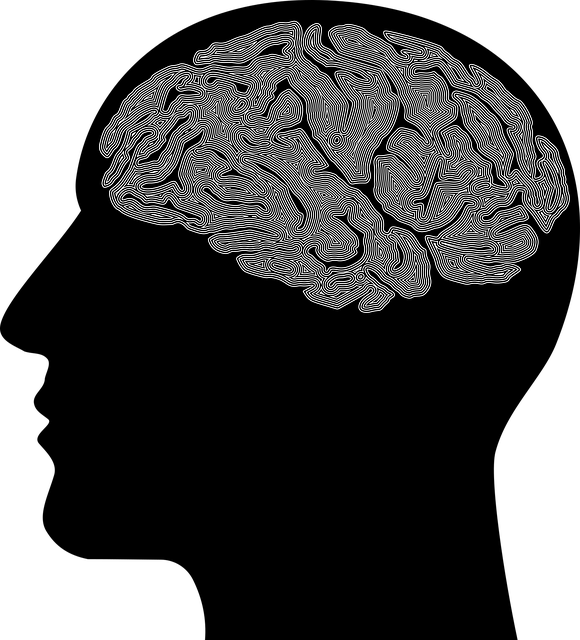Boulder French Speaking Therapy leverages data analysis to provide tailored mental health support for patients speaking French. By combining clinical notes, patient self-reports, and standardized assessments with advanced statistical methods and machine learning algorithms, they gain unique insights into the specific needs and experiences of their community. This data-driven approach personalizes treatments, improves communication strategies, and enhances Mental Health Education Programs, ultimately revolutionizing care delivery for diverse cultural groups in Boulder. Advanced techniques like self-awareness exercises and risk management planning ensure patient privacy while fostering ethical practices, enabling therapists to build strong therapeutic bonds with clients.
Mental health data analysis has emerged as a powerful tool for understanding complex psychological issues. This article delves into the critical components of mental health data interpretation, exploring various collection sources and techniques. We discuss advanced analysis methods to uncover deeper insights, focusing on identifying patterns and trends that can shape effective treatment strategies. Furthermore, we highlight the unique role of Boulder French Speaking Therapy in integrating data-driven care, enhancing therapeutic approaches through evidence-based practices.
- Understanding Mental Health Data: Collection and Sources
- Data Analysis Techniques for Deeper Insights
- Interpreting Findings: Identifying Patterns and Trends
- The Role of Boulder French Speaking Therapy in Data-Driven Care
- Enhancing Treatment Approaches with Interpreted Data
Understanding Mental Health Data: Collection and Sources

Understanding mental health data is a multifaceted process, crucial for effective analysis and interpretation. Data collection begins with various sources, including clinical notes from therapy sessions, patient self-reports through surveys or journals, and standardized assessments administered by professionals. In the context of Boulder French Speaking Therapy, this data reflects the unique needs and experiences of individuals seeking support in their native language. Self-Awareness Exercises play a vital role in this process, enabling patients to articulate their feelings and thoughts more openly.
Risk Management Planning for Mental Health Professionals is also essential when handling such data. It involves implementing measures to protect patient privacy and confidentiality while ensuring the ethical use of information. Effective communication strategies, such as active listening and clear, empathetic dialogue, are integral to gathering accurate and meaningful data. These practices facilitate a safe space where individuals feel comfortable sharing their mental health journeys, ultimately enhancing the quality of care provided.
Data Analysis Techniques for Deeper Insights

In the realm of mental health data analysis, advanced techniques are instrumental in unearthing profound insights and personalizing treatments. Boulder French-speaking therapy professionals leverage sophisticated statistical methods and machine learning algorithms to interpret complex datasets, allowing them to tailor interventions effectively. By employing these innovative tools, practitioners can identify subtle patterns and trends within individual profiles, enabling the design of Mental Health Education Programs that are both comprehensive and culturally sensitive.
Depression Prevention strategies greatly benefit from this data-driven approach, as researchers uncover risk factors and protective measures specific to diverse populations. Communication Strategies also evolve with a deeper understanding gained through analysis, fostering more effective patient engagement and support. This nuanced perspective empowers mental health professionals to address the unique needs of their clients, ultimately enhancing treatment outcomes in Boulder’s vibrant community.
Interpreting Findings: Identifying Patterns and Trends

When analyzing mental health data, one of the key aspects is interpreting the findings to identify patterns and trends that can offer valuable insights. This process involves sifting through numerical data, textual responses, and qualitative observations to uncover hidden correlations. For instance, in a study focused on Boulder French-speaking therapy, researchers might discover a pattern where certain therapeutic techniques are more effective for specific demographics or conditions. Identifying such trends can guide practitioners in tailoring their approaches, ensuring that each client receives the most suitable care.
By delving into these patterns, mental health professionals can enhance their understanding of complex issues like burnout prevention strategies for healthcare providers. For example, analyzing data could reveal a strong correlation between self-care practices and reduced burnout rates among French-speaking therapy practitioners in Boulder. This knowledge is invaluable for developing effective Mental Wellness Coaching Programs, fostering inner strength development, and ultimately improving the overall mental health landscape.
The Role of Boulder French Speaking Therapy in Data-Driven Care

In today’s digital era, mental health data analysis is revolutionizing care approaches. Tools like Boulder French Speaking Therapy play a pivotal role in this transformation. This specialized therapy offers unique benefits by combining language expertise with evidence-based practices, enabling comprehensive emotional regulation and tailored self-care guidance. Through advanced data interpretation, therapists can identify patterns and trends within client narratives, providing insights into their mental wellness journeys.
Boulder French Speaking Therapy goes beyond typical therapy sessions. It incorporates innovative methods, such as mental wellness journaling exercises, to empower individuals in tracking their emotions, identifying triggers, and adopting effective coping strategies. This data-driven approach not only enhances the accuracy of diagnoses but also personalizes treatment plans, fostering a deeper connection between therapists and clients.
Enhancing Treatment Approaches with Interpreted Data

In the realm of mental health, data analysis and interpretation play a pivotal role in enhancing treatment approaches. By delving into statistical insights, therapists can tailor their strategies to meet the unique needs of individuals or communities. For instance, in Boulder French-speaking therapy settings, interpreted data allows for culturally sensitive practices. This involves understanding the specific challenges faced by French-speaking populations regarding mental health and adapting treatments accordingly. The process leverages Public Awareness Campaigns Development and Mental Health Education Programs Design to foster a more inclusive and effective therapeutic environment.
Moreover, interpreted data guides the development of Mental Wellness Coaching Programs. These programs can be customized based on demographic factors, ensuring that each participant receives relevant support. Such tailored interventions have been shown to significantly improve outcomes, as they address specific barriers and promote better mental wellness. This approach not only respects diverse cultural backgrounds but also leverages data-driven insights to revolutionize mental health care, making it more accessible and impactful.
Mental health data analysis is a powerful tool for understanding complex issues and guiding treatment strategies. By employing various techniques, from source identification to trend recognition, professionals can gain valuable insights. The integration of Boulder French Speaking Therapy’s expertise in data-driven care ensures that these findings translate into effective, personalized treatments. Through this comprehensive approach, mental health services can be enhanced, fostering better outcomes for individuals seeking support.













